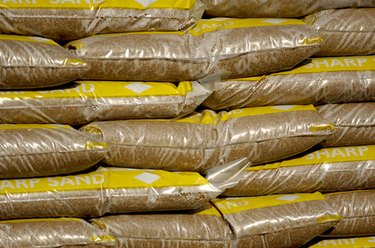
Sandblasting thoroughly cleans and prepares a surface for painting. Spraying sand at a high velocity toward the intended surface removes stubborn dirt, grime and other matter. Sandblasting is ideal for concrete, brick, stucco and other surfaces.
Significance
Video of the Day
Sandblasting was originally used to sharpen and grind tools. Wood, metal, glass, concrete and brick are some of the substrates that are usable in this process. It will remove any dirt, paint or other substance in preparing the substrate for painting. Sandblasting also refreshes the look of concrete and brick. Sandblast old sidewalks, brick walls, windows and even roofing. Sandblasting can also smooth rough surfaces.
Video of the Day
Techniques
There are two types of sandblasting techniques. Wet sandblasting is commonly used for exterior jobs, and dry sandblasting is typically used on interior jobs or special projects. The wet sandblasting process works well to remove paint, stucco and other debris from a substrate.
Considerations
Some cities and towns require a permit for sandblasting. Wet sandblasting is preferable over dry sandblasting as it is less invasive. Before sandblasting, cover structures not needing the process with plastic sheeting to protect them from erosion.
Notify neighbors before sandblasting. As sand is sprayed it may drift toward a neighbor's property. Let them know what you are up to and offer to protect their property with sheeting as well.